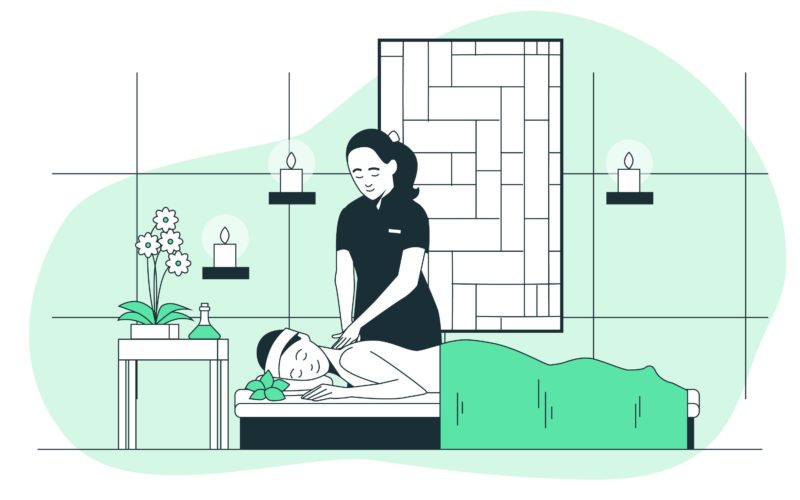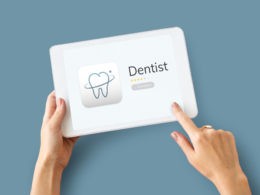By first and foremost laying the foundations of knowledge and skill, one can consider a career in massage therapy to be successful. The future massage therapist has to learn the basics of anatomy, physiology, and different techniques of massage in order to carry out an effective treatment. This requires a good understanding of the body and how various techniques will impact it. Results, concerning improving the health and well-being of clients, are expected, and beginning with an education from a fully accredited massage therapy school starts you off with these core competencies and the beginnings of confidence for your professional development process.
Specialization
Massage therapy includes various specialized fields of study, from deep tissue and sports massage to prenatal and relaxation-based practices. Specializing in one of these areas helps you stand out in an oversaturated market and attracts a specific kind of client. It not only refines your skills but also creates opportunities for higher earning potential and customer loyalty over time. Take your time to explore various modalities during your training or early in your career, and figure out what you enjoy the most and are best at.
Building Your Technical and Interpersonal Skills
Success in massage therapy is not only in mastering the techniques, but also in being able to relate well with your clients. Active listening, showing empathy, and maintaining a professional outlook are also important for relationship-building and trust with your clients. Continuous upgrading of technical skills will provide quality services relevant to each client’s needs. Participate in various workshops and certification programs that hone your hands-on skills and methods of communication.
Gaining Experience in Diverse Settings
Various working experience is the crucial way for any well-rounded career. You may well begin your career with either working in a spa environment, wellness clinic, or a medical environment, all of which have their various challenges and learning experiences. Working in different settings helps you understand the various needs and expectations of clients, thereby making you not only versatile but also adaptable as a therapist. Such experiences can also help you decide whether you want to work with a team or if you will eventually like to have your own practice.
Effective Self-Marketing
In the digital age, marketing remains a top priority for any successful massage therapy practice. Creating a professional online presence through a website and social media allows potential clients to discover your services and book appointments. Showcase your specialties, certifications, and client testimonials to build credibility and trust. Additionally, word-of-mouth referrals remain one of the most powerful marketing tools in this industry, so prioritize delivering exceptional client experiences that will encourage positive reviews.
Continuing Education
Massage therapy is one of those professions that is growing, where new techniques are emerging, new tools being developed and research emerging. Continuing education at a massage therapy school is important if a professional wants to be competent in his occupation to offer the best possible care. Many states require licensed massage therapists to complete ongoing training to maintain their credentials beyond minimum requirements. Advanced education in massage enables you to expand your skills and keep yourself updated with industry trends. This investment in your professional development may yield increased customer satisfaction and higher earning potential in return.
Maintaining Physical and Mental Well-Being
One must care about one’s health since this line of profession is physically demanding if one is intending to have long-term success in this field. Employ good body mechanics to avoid strain and injury in the delivery of treatments. Regular aerobic exercise, stretching, and strengthening can help build your stamina and increase your agility. Not to be forgotten is psychological wellness-burnout is a hazard in the caring professions. Being clear about boundaries and workload, leaving space for yourself for self-care, will allow you to maintain a satisfying and healthy profession.
The Power of Professional Networking
This networking is a big part of the process in creating a successful massage therapy career. Networking with other professionals provides you with the ability to exchange information, find mentors, and learn about job opportunities. Networking is also possible at industry conferences, through membership in local massage associations, and at community wellness events. Your network will be a great source of information, referrals, and other collaboration throughout your career.
Technology and Equipment
Massage therapy-related technology is evolving fast, changing how practitioners run their practices and interact with clients. Scheduling software, e-payment systems, and web-based client management programs will make quick work of administrative duties, freeing your time to devote to giving great care. Additionally, incorporating tools like massage chairs, hydrotherapy equipment, or percussion devices into your services will add value to the services and help differentiate your practice. Being receptive to new technologies often leads to improved efficiency for the practitioner and customer satisfaction.
Overcoming Difficulties and Remaining Resilient
Like any profession, massage therapy has its setbacks that come in the forms of irregular schedules, physically taxing jobs, and pleasing demands from customers. Resilience would, therefore, be an important component in sailing through these difficulties. Create a support network out of fellow professionals, mentors, or friends who understand your struggles in the profession and are best-placed to advise. Remember, every challenge is an opportunity to get stronger and refine how you approach your work. A good attitude, with a search for ways out, will help you stay motivated if barriers come up.
Authenticity in Growing Your Practice
Authenticity, whether you work as a solo professional or as part of a firm, forms the very bedrock of your credibility and client retention. Authenticity in your relationships starts with personal attention and knowing them as an individual. The quality of your services should never be sacrificed for the sake of quantity, and ethical considerations should not be sacrificed for either. When clients feel heard and respected, they’re more likely to return and recommend your services to others.
Setting Long-Term Goals
Success as a massage therapist often involves intentional planning and goal setting. Consider what you want your career to look like in five or ten years, and write out a roadmap of steps necessary for you to achieve those aspirations. Maybe that means opening your own studio, further specialization, or teaching the next generation of therapists. Having clear goals keeps you focused and motivated. Regularly review and adjust goals as your career evolves and opportunities become available.
A fulfilling career in massage may be considered a journey that calls for sacrifice, study, and devotion to those being served. From choosing the right education and specialization to marketing your services and maintaining your well-being, every step is an important part of professional development. Being flexible, embracing lifelong learning principles, and connecting with other professionals in the field will all enable you to forge a career that will support both your personal endeavors and positive change in people’s lives.












